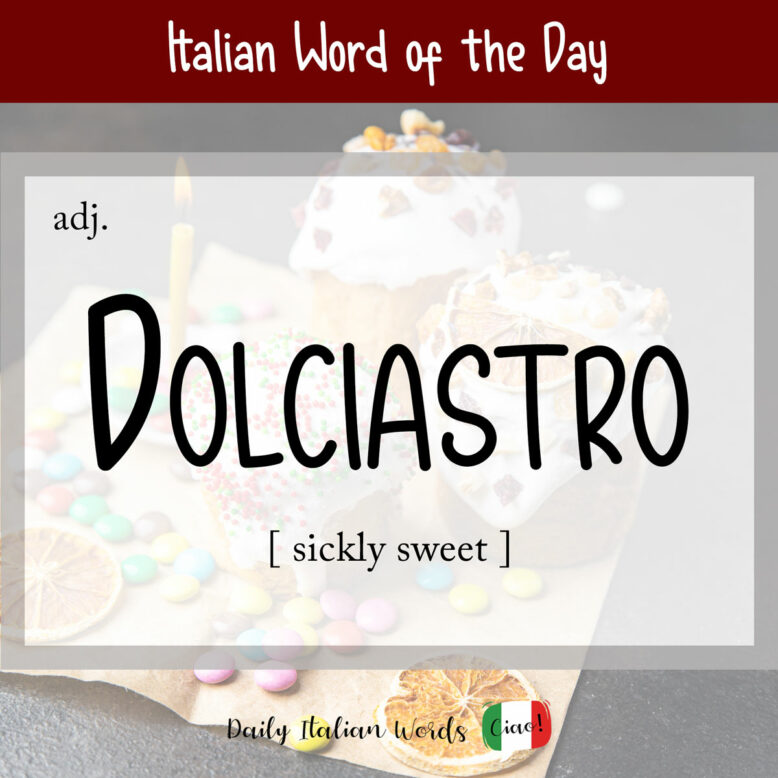The adjective dolciastro, which derives from the more commonly known adjective dolce (sweet), refers to anything that is sweet in flavour, but not pleasant. Some possible translations include sickly sweet or cloying.

Adjectives such as dolciastro always agree with the noun they describe, which means that they have to demonstrate whether they are masculine, feminine, singular or plural. This is achieved by changing the ending of the adjective. For example:
- il vino dolciastro = the sickly sweet wine
- la torta dolciastra = the sickly sweet cake
- i vini dolciastri = the sickly sweet wines
- le torte dolciastre = the sickly sweet cakes
La minestra ha un sapore dolciastro.
The soup has a sickly sweet flavour.

Similar to its English equivalents, dolciastro can also be used figuratively to describe a person’s character or their mannerisms.
“Buonasera” disse l’uomo, con una voce dolciastra.
“Good evening,” the man said, in a sickly sweet voice.
Heather Broster is a graduate with honours in linguistics from the University of Western Ontario. She is an aspiring polyglot, proficient in English and Italian, as well as Japanese, Welsh, and French to varying degrees of fluency. Originally from Toronto, Heather has resided in various countries, notably Italy for a period of six years. Her primary focus lies in the fields of language acquisition, education, and bilingual instruction.


